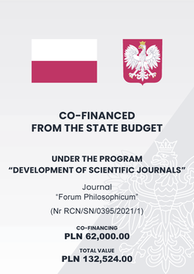- Home »
- Issues »
- 26/1 – Spring 2021 »
- Articles »
Expressing Tranquility
Worthwhile Action at the Limit of Epicurean Pleasure
Abstract
The Epicureans are hedonists who believe that pleasure is the only intrinsic good. Since pleasure is the only intrinsic good, other things are only worthwhile for the sake of pleasure. Tranquility is the final Epicurean telos, i.e., all of our actions should aim for freedom from bodily and mental pain. According to the Epicureans, tranquility is the limit of the magnitude of pleasures so that there is no pleasure beyond tranquility. Once we free ourselves from all pain, there are no further pleasures to pursue. This poses the following problem. Since hedonism is true and something is only worthwhile for the sake of pleasure, but there are no further pleasures for those who have achieved tranquility to pursue, then it seems that nothing is worthwhile to the tranquil. This poses a problem for Epicureans because they should reject this consequence and they seem to want to do so, but they cannot without contradicting themselves about the nature and limit of pleasure. I call this the Nothing is Worthwhile to the Tranquil Problem (NWP). This paper develops a strategy that Epicureans can adopt to solve NWP. I develop this strategy in three stages. First, I explain NWP: Epicurean claims about the limit and nature of pleasure suggest that nothing can be worthwhile to the tranquil. Second, I show that this problem is analogous to the Problem of Creation (PoC), which claims that an impassible God has no reasons to create. Third, I argue that a prominent solution to PoC can also solve NWP. That solution goes as follows. Some activities are worthwhile to the tranquil because these activities express tranquility, just as creating is worthwhile to God because it expresses God’s perfections. In the final section, I raise three objections to this solution. None of them is strong enough to defeat the solution for which I argue, and so I conclude that it merits consideration as a solution to NWP.
Keywords
Cite this article
Gillham, Alex. “Expressing Tranquility: Worthwhile Action at the Limit of Epicurean Pleasure.” Forum Philosophicum 26, no. 1 (2021): 143–62. doi:10.35765/forphil.2021.2601.09.
Bibliography
Almeida, Michael. 2017. “The Multiverse and Divine Creation.” Religions 8 (12): 1–10. https://doi.org/10.3390/rel8120258.
Arensen, Kelly E. 2019. “Epicureans on Pity, Slavery, and Autonomy.” Proceedings of the Boston Area Colloquium in Ancient Philosophy 34 (1): 119–36. https://doi.org/10.1163/22134417-00341P11.
Bates, William. 1999. The Whole Works of the Rev. W. Bates. Vol. 1. edited by W. Farmer. Harrisonburg: Sprinkle Publications.
Brown, Eric. 2009. “Politics & Society.” In The Cambridge Companion to Epicureanism, edited by James Warren, 179–96. Cambridge: Cambridge University Press.
Carnes, Thomas. 2021 (fothcoming). “Keeping the Friend in Epicurean Friendship.” Apeiron 54 (4).
Dimas, Panos. 2015. “Epicurus on Pleasure, Desire, and Friendship.” In The Quest for the Good Life: Ancient Philosophers on Happiness, edited by Øyvind Rabbås, Eyjólfur Kjalar Emilsson, Hallvard Fossheim and Miira Tuominen, 164–82. Oxford: Oxford University Press.
Dolezal, James E. 2019. “Strong Impassibility.” In Divine Impassibility: Four Views of God’s Emotion and Suffering, edited by Robert J. Matz and A. Chadwick Thornhill, 13–52. Downers Grove: Illinois IVP Academic.
Epicurus. 1994. The Epicurus Reader. Translated by Brad Inwood and L. P. Gerson. Indianapolis, IN: Hackett.
Evans, Matt. 2004. “Can Epicureans Be Friends?” Ancient Philosophy 24 (2): 407–24. https://doi.org/10.5840/ancientphil200424250.
Garcia, Laura L. 1992. “Divine Freedom and Creation.” The Philosophical Quarterly 42 (167): 191–213. https://doi.org/10.2307/2220215.
Helm, Paul. 1990. “Impossibility of Divine Passibility.” In The Power and Weakness of God: Impassibility and Orthodoxy, edited by Nigel M. de S. Cameron, 119–40. Edinburgh: Rutherford House Books.
———. 2010. Eternal God: A Study of God Without Time. 2 ed. Oxford: Oxford University Press.
Kraay, Klaas J. 2010. “Theism, Possible Worlds, and the Multiverse.” Philosophical Studies 147 (3): 355–68.
Kretzmann, Norman. 1991. “A General Problem of Creation: Why Would God Create Anything at All?” In Being and Goodness: The Concepts of Good in Metaphysics and Philosophical Theology, edited by Scott MacDonald, 208–28. London: Cornell University Press.
Mullins, R. T. 2020. “The Problem of Arbitrary Creation for Impassibility.” Open Theology 6 (1): 392–406. https://doi.org/10.1515/opth-2020-0110.
O’Connor, David. 1989. “The Invulnerable Pleasures of Epicurean Friendship.” Greek, Roman, and Byzantine Studies 30: 165–86.
Pink, Arthur W. 1975. The Attributes of God. Grand Rapids, MI: Baker Books.
Pruss, Alexander R. 2017. “Divine Creative Freedom.” In Oxford Studies in Philosophy of Religion, edited by Jonathan L. Kvanvig, 213–38. Oxford: Oxford University Press.
Randles, Marshall. 1900. The Blessed God: Impassibility. London: Charles H. Kelly.
Rossi, Benjamin. 2017. “Squaring the Epicurean Circle: Friendship and Happiness in the Garden.” Ancient Philosophy 37 (1): 153–68. https://doi.org/10.5840/ancientphil20173718.
Swinburne, Richard. 1994. The Christian God. Oxford: Oxford University Press.
Ward, Keith. 2015. Christ and the Cosmos: A Reformulation of Trinitarian Doctrine. Cambridge: Cambridge University Press.
———. 2017. The Christian Idea of God: A Philosophical Foundation for Faith. Cambridge: Cambridge University Press.





